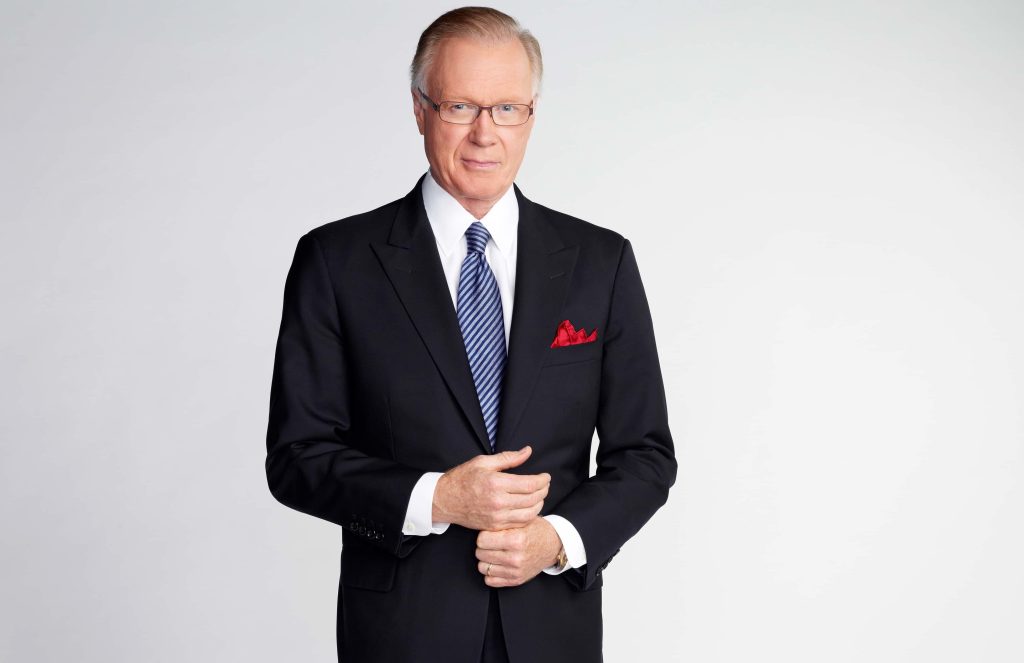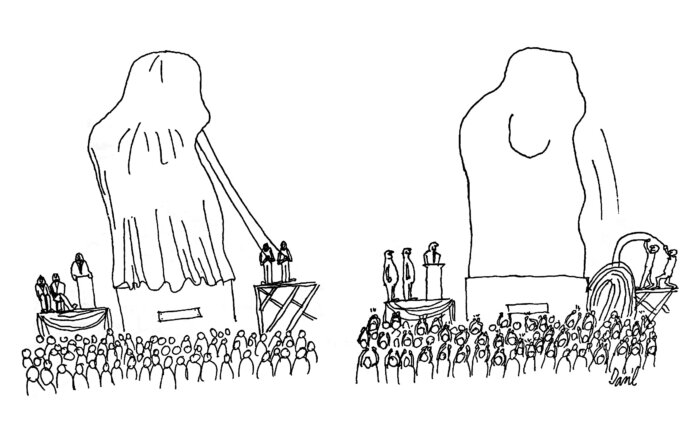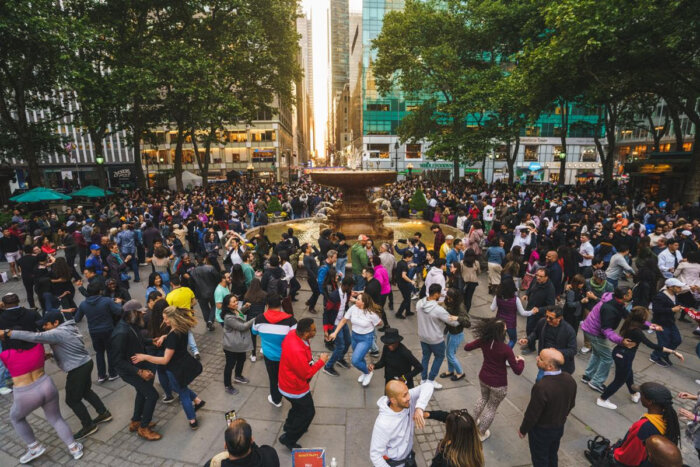New Yorkers young and old know that familiar face and distinctive voice that have graced television screens for decades.
Chuck Scarborough, the dapper anchor who has led breaking news coverage locally and abroad — garnering awards, including 36 local Emmys — reigns as the king of New York news. This year marks his 45th anniversary at WNBC, the New York City flagship station of NBCUniversal, making him the longest-serving anchor in New York TV history.
The Press met the legendary newsman at his seventh-floor offices at 30 Rockefeller Plaza. Scarborough spoke about his father, the changing mediascape, his interest in aviation, and his love of furry and feathered creatures.
During our chat, Scarborough invited anyone who shares his passion for animal welfare to join him and his wife, Ellen, at the 13th Annual GET WILD Benefit on June 29 from 5 to 7 p.m. at Little Orchard in Southampton. And, asked viewers to Save the Date – August 17 – for WNBC’s Clear the Shelters Pet Adoption Drive.
Congratulations on your 45-year anniversary at WNBC. Did you think you’d be here this long? I came here in 1974. There was no cable television, just three major networks and a couple of independent stations. NBC New York had suffered a terrible rating decline and they were looking to do something dramatic and put the first two-hour newscast on from 5 p.m. to 7 p.m. They were looking for someone to do that. I was hired out of Boston. I was 30 years old. Forty-five years later and I guess it worked.
How have the stories changed? It’s not so much the stories have changed; it’s just that we have an explosion of platforms. The coverage from all sources have made it a little more challenging. I would say fundamentally human behavior hasn’t changed over the time I have been doing this. There is the same degree of complacency and heroism.
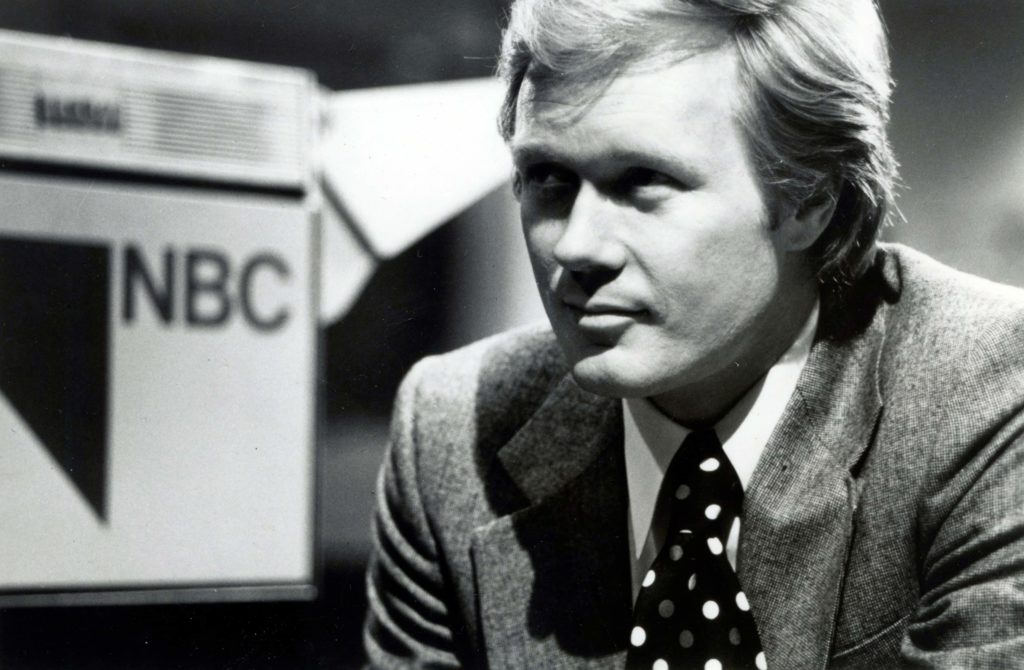
It may be hard to imagine, for some, but how were the days of news coverage pre-internet? Before we had the internet, we had these very disciplined systems that were well-managed disseminating information and making sure we were living up to the standards we are living up to as journalists: being fair, and honest and balanced and making sure our sources were accurately and positively sourced. All of the basic rules of journalism and the structure to reinforce them. The internet came up. It provided a way for anybody to disseminate globally anything. That has helped us in some ways but has also created this enormous arena for mischief.
How do you feel about the term “fake news”? I think to fire at every news organization out there isn’t fair. But I think there is plenty of questionable material floating around the internet. Certainly, it has enabled the amplification of bad human behavior; by that I mean you can bully someone now anonymously and organize it.
Has it changed your role? I don’t think my job has changed a great deal. My standards certainly haven’t and our [National Broadcasting Company] standards certainly haven’t. I do have these concerns about the quality of information that people are receiving because the whole point of the First Amendment and the whole point of establishing a free press was to make certain that citizenry A) was informed to make a reasonable decision at the ballot box and B) has one more check on power. These are very important functions in a democracy.
You have done thousands of stories. Was there one that had the most impact on you? The biggest impact by far was 9/11. We were on the air for a week straight without interruption covering that. That changed the entire globe that day. In the immediate aftermath of 9/11, once NY settled down, I went off to the Philippines to cover what had been a little unknown corner in the war on terror. We had 160 special forces troops down in the southern Philippines helping the military army pursue the Abu Sayyaf terror group linked to Al Qaeda. What I saw there were posters of Osama Bin Laden being sold in kiosks on the street. It hit me at that point soon after 9/11 what a pervasive and dangerous force radical Islam was, and I didn’t confront the global nature of it until I was in the Philippines.
What were some of the most memorable Long Island stories you covered? The biggest story was Flight TWA 800 in 1996 that was going to Paris. As soon as we got word that a plane had vanished from radar we jumped on air. I was in contact with the helicopter and as he was approaching the South Shore of Long Island where the plane vanished we could see a strange glow in the distance and as the helicopter got closer we realized it was the jet fuel from the plane that was burning. The ocean was on fire. It was the most chilling thing I’ve ever seen. Your heart fell when that happened. Families were wiped out. It was just hideous. The Pine Barrens fire was another. It was a big story and a disastrous fire, 2,500 acres burned. And the Avianca Flight 52 crash from Bogota, Colombia to New York. The Boeing 707 ran out of fuel after a failed attempt to land at Kennedy Airport and crashed off the North Shore of Long Island in Cove Neck. Sixty-five of the 149 passengers on board were killed.
I understand you have your commercial pilot license. Do you still fly? My father flew bombers in the second World War. When he came back I was two years old when I met him. He would regale me with tales of training and his missions. As a young boy growing up this was all fabulous and it was inevitable that as soon as I could I would fly an airplane and I did. I will go out when I get the itch go out to the airport. I take an instructor pilot with me because I don’t fly often enough to feel safe. Flight is fairly unforgiving. You can’t pull over on the side of the road if you forgot to do something.
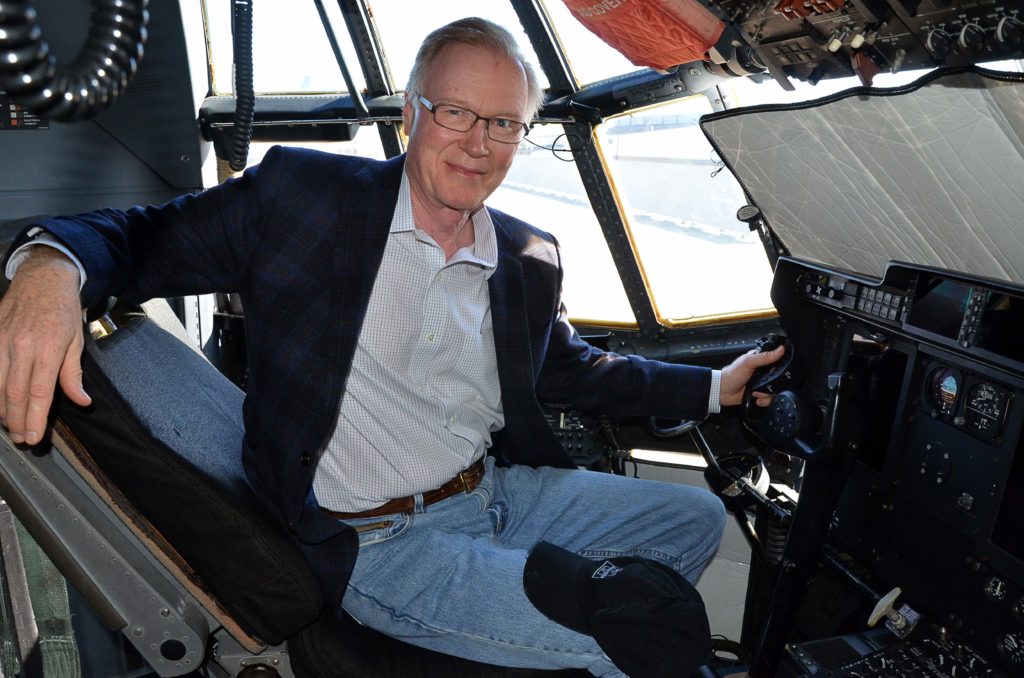
How have stories changed with social media? Everyone has a camera now. We get all sorts of material we never would have gotten. That has opened up more possibilities for us to expand our coverage. Our own reporters can whip out their phones in an emergency; if they see something happening they can start recording.
What can you share that our readers may not know? My mother lived in East Hampton and moved to Southampton and then went to Peconic Landing. She spent the final years of her life there. And I have a home on the East End of Long Island. I spend a lot of time out there. It is a wonderful place to go. After 9/11 when I could finally get away after that horrible day I went out to the East End. It was so peaceful after the chaos and to spend time there was some sort of touchstone. Long Island saved me that day.
You’ve managed to look good. What’s your secret? When I hit the age of 60 I decided I needed to be a little more serious about taking care of myself. I couldn’t coast along on my previous youthful conditioning. That is when I got a little more disciplined about my exercise and diet. I like eating dessert but stopped eating it. It took one tough year. And I do cardio at least three days a week and some weight training to keep muscle tone. I will throw something out from the Air Force on days you don’t feel like exercising: “Defeat the urge to skip a day.”
I know you are an animal lover. We have two female mixed-breed shelter dogs named Phoebe and Emma. Phoebe was found on a roadside in Texas. The senior of the two is Emma. She was from South Carolina and was living in the woods. We also have a black-and-white male tuxedo cat.
What are some initiatives you support? My wife Ellen is involved in three different animal organizations and shelters. She chairs the fundraiser for the Evelyn Alexander Wildlife Rescue Center. It is the only place you can go to on the East End of Long Island if you stumble on an injured furry or a feathered creature. It is a struggle every year to raise the funds necessary to keep the center going. The Animal Rescue Fund of the Hamptons is another. Ellen is on the board. And a marvelous little shelter called Gimme Shelter. This is where we got two of our little black dogs.
Many of our readers are passionate about animals. What can they do? I would like people to be aware these are vital resources and we can do something to help. Get Wild at the Wildlife Rescue Center is the first thing coming up, on June 29 and that really needs support. We have crowded animals out to a great extent on Long Island with development and we do share the environment with these creatures and they do enrich our lives.
Will our readers get to see you? I will be there.



